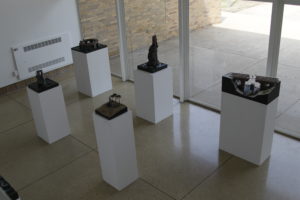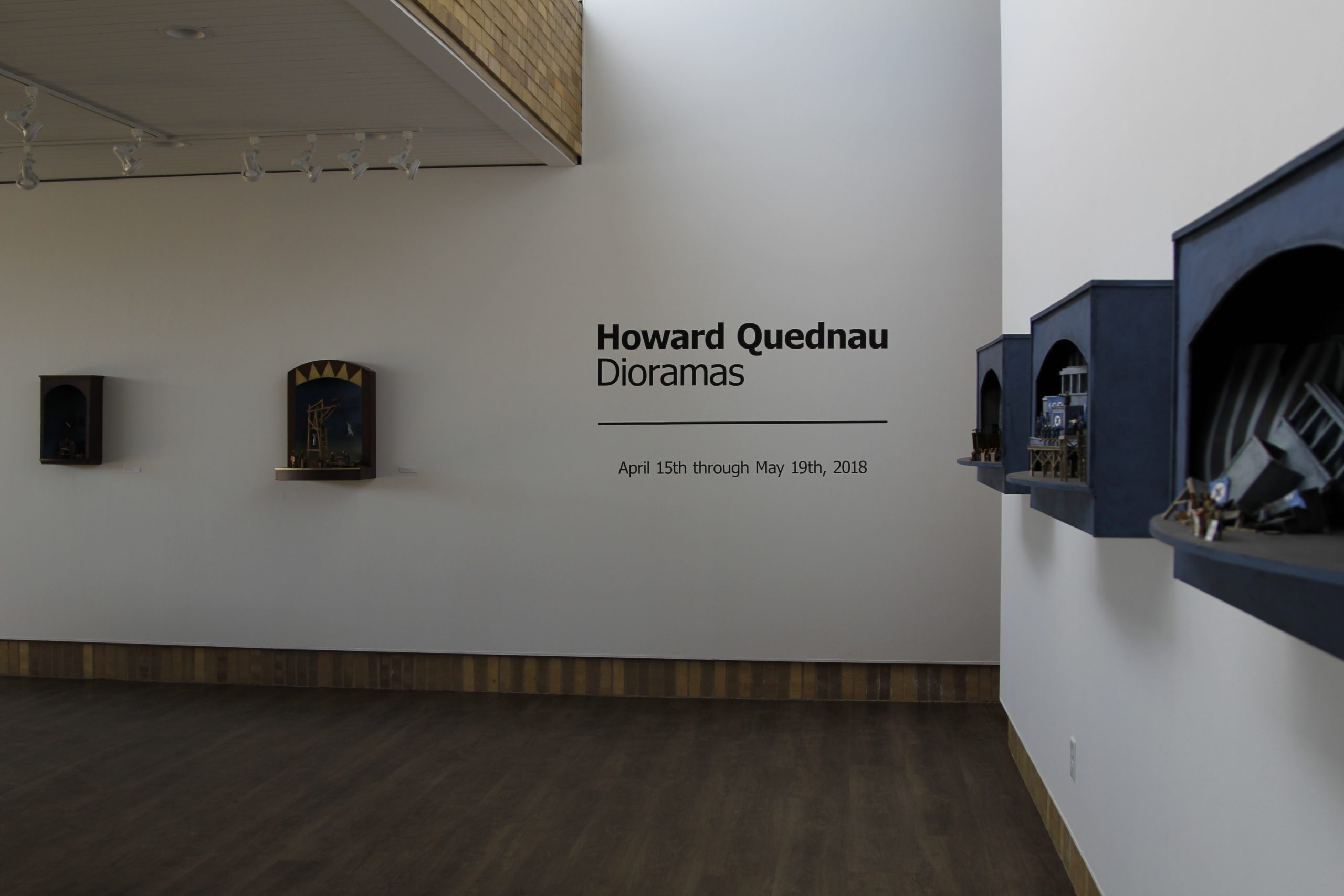Howard Quednau’s diorama exhibit will be on display in the Schaefer Art Gallery, showing until May 19.
His exhibit, titled “Howard Quednau: Dioramas”, incorporates pieces that Quednau has been working on for the past eight years.
Quednau is former colleague at the Minneapolis College of Art and Design from 1994-2007, and friend of Gustavus Professor and Chair of the Art and Art History Department, Kristen Lowe.
Lowe asked Quednau to come and display his unique and innovative pieces for the Gustavus community.
These dioramas are explained as ‘theatrical events’ in Quednau’s artist statement.
He also goes on to talk about how these pieces are essentially three-dimensional paintings. The pieces cover a variety of topics and themes.
“The exhibition features work with three themes: 1) human frailty and interaction 2) homage to specific paintings 3) political satire,” Quednau said.
This array of topics and themes make for an exhibit that will touch on many different parts of human life and our modern world, making it easy to connect for a large audience.
Quednau is currently the Chair of Fine Arts and the Minneapolis College of Art and Design.
He studied Printmaking at the University of Wisconsin and then received an MFA from from Northern Illinois University School of Art in Drawing.

Quednau is used to working with and creating two-dimensional artwork, so this exhibit has been quite different than what he is used to.
“Most of my experience has been with 2-D forms, so this diorama work has provided me with some new challenges,” Quednau said.
Quednau’s pieces also reflect our world and what we all could lose if we allow others to lose their rights.
“Many of the newest works (such as the three titled ‘Burlesque’) were created as a response to our current national political discourse.
“While I am a cis man, I realized I was watching a culture war unfold before my eyes. The forces of government, industry and media have created destructive machinery that threatens women, immigrants, the LGBTQ community and those whose beliefs are deemed a threat.
“There is no such thing as ‘someone else’s war’ we all stand to [lose] something. This work is a satirical cry for resistance to this sort of new-age totalitarianism,” Quednau said.
Quednau has been intrigued in this issue and feels a significance in helping those who may be having their rights stripped from them.
Lowe thinks that this exhibit will be an inspiration to students and can show how to push boundaries in their work.
“Students have been intrigued by the work. It is important to see art made that crosses over material restrictions, these works don’t fall neatly into one category.
“Students could create a diorama and draw from it or use it to create a mythical place or raise social or political questions for the viewer to consider,” Lowe said.
Quednau has spent hours working on every aspect of this exhibit, especially the “actors” in the pieces.
“The “actors” in these dioramas are made from pieced-together fragments of model soldiers. There are more than one hundred of them, and no two are alike.
“Each takes between one and five hours to complete, depending on how much I have to change them. They are built to a scale of one inch equaling 35 inches, which makes them bigger than model train people and smaller than dollhouse figures,” Quednau said.
Quednau encourages students to visit the exhibit and explore their imagination, empahsizing the idea it’s a great stress relief and study break.
“[The exhibit is] more fun than writing footnotes for [a] European History research paper [and] cheaper (and quieter) than ‘Avengers: Infinity War’…
Much like a model train or a dollhouse, a diorama asks the viewer to engage in a game of pretend. the make-believe worlds becomes a metaphor for our shared experiences.” Quednau said.
